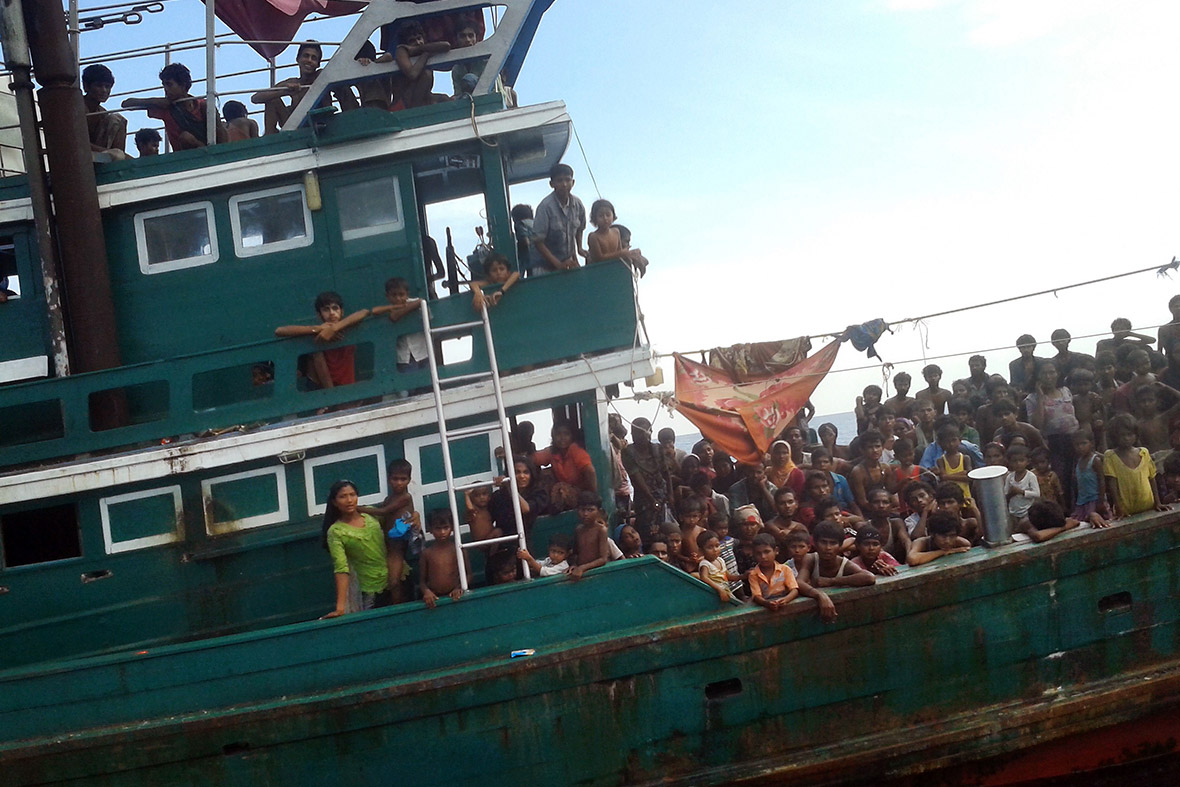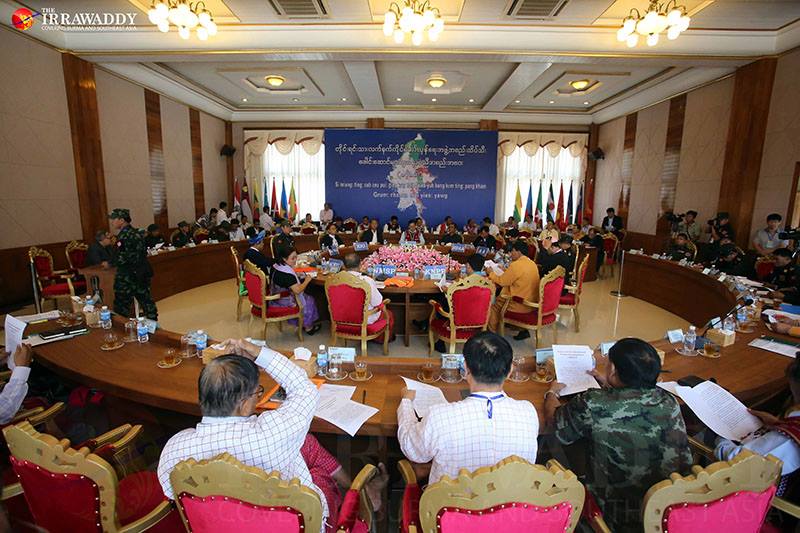Posts Tagged ‘Refugees’ (118 found)
FBR’s relationship with the Burma Government and an Assessment of the Current Situation in Burma
The situation in Burma is changing, in some case for the better and in others for the worse. In the midst of this FBR continues its mission of giving help, hope and love and putting a light on the situation. In areas where there have been improvements, such as parts of Karen State, some of […]
• • •On World Refugee Day Burma Government and International Community Must Commit to Respecting Voices and Rights of Burma’s Refugees
(20 June, 2015) On this 2015 World Refugee Day, we stand in solidarity with the over 110,000 refugees who fled Burma to seek protection in the nine camps along the Thailand-Burma border, embodying the years of conflict and the struggle for democracy […] ၂၀၁၅ ခုႏွစ္ ဇြန္လ ၂၀ ရက္ေန႕တြင္ က်ေရာက္သည့္ ကမၻာ့ဒုကၡသည္မ်ားေန႔တြင္ ျမန္မာႏိုင္ငံမွ ထြက္ေျပးလာၿပီး ထိုင္း-ျမန္မာ နယ္စပ္တေလွ်ာက္ရွိ ဒုကၡသည္စခန္း (၉) ခု၌ ကာကြယ္ေစာင့္ေရွာက္မႈခံယူေနေသာ ဒုကၡသည္ ၁၁၀,၀၀၀ ေက်ာ္ႏွင့္ အတူ ကၽြႏ္ုပ္တို႔ ေသြးစည္းညီၫြတ္စြာ ရပ္တည္ေနပါသည္။ ယင္းဒုကၡသည္မ်ားမွာ ႏွစ္ေပါင္းမ်ားစြာ ၾကာေညာင္းေနၿပီျဖစ္သည့္ စစ္ပြဲ ႏွင့္ ဒီမိုကေရစီေရးတိုက္ပြဲကို ထင္ဟပ္ေနပါသည္။ ကၽြႏု္ပ္တို႔သည္ ကုလသမဂၢဒုကၡသည္မ်ားဆိုင္ရာမဟာမင္းႀကီး (UNHCR)၊ ျမန္မာအစိုးရ၊ ႏိုင္ငံတကာအလႉရွင္မ်ားႏွင့္ သက္ဆိုင္သူအားလံုးတို႕ကို ၁၉၅၁ ခုႏွစ္ ဒုကၡသည္အဆင့္အတန္းဆိုင္ရာ ကြန္ဗင္း ရွင္းသေဘာတူညီခ်က္ႏွင့္ ၁၉၆၇ ခုႏွစ္ ဒုကၡသည္အဆင့္အတန္းဆိုင္ရာ လုပ္ထံုးလုပ္နည္းတို႔အား ေလးစားလိုက္နာရန္ႏွင့္ ဒုကၡသည္အားလံုး၏ အခြင့္အေရးမ်ားကို ထိန္းသိမ္းေစာင့္ေရွာက္အားေပးရန္ ေတာင္းဆိုလိုက္ပါသည္။ […]
• • •Repatriation fears mar Refugee Day in Thai border camps
 Tha Song Yang, Thailand – An organisation representing the ethnic Karen minority in Myanmar has warned against the hasty repatriation of more than 130,000 refugees currently residing in Thai border camps […]
Tha Song Yang, Thailand – An organisation representing the ethnic Karen minority in Myanmar has warned against the hasty repatriation of more than 130,000 refugees currently residing in Thai border camps […]
To Recognize and Repair: Unofficial Truth Projects and the Need for Justice in Burma
 The advance towards a free and democratic Burma has so far done little to account for the crimes of its past. Emerging from a military dictatorship and opening its doors to the outside world has certainly led to an increased focus from the international community on the future of the country. As a result of increased scrutiny by the outside world, the U Thein Sein government has repeatedly reiterated their genuine commitment to improving the human rights situation. Despite government statements to the contrary, the situation for human rights defenders, journalists, farmers, land rights activists and civilians particularly in ethnic areas – has not improved […]
The advance towards a free and democratic Burma has so far done little to account for the crimes of its past. Emerging from a military dictatorship and opening its doors to the outside world has certainly led to an increased focus from the international community on the future of the country. As a result of increased scrutiny by the outside world, the U Thein Sein government has repeatedly reiterated their genuine commitment to improving the human rights situation. Despite government statements to the contrary, the situation for human rights defenders, journalists, farmers, land rights activists and civilians particularly in ethnic areas – has not improved […]
ကခ်င္အမ်ိဳးသမီးမ်ားအစည္းအရံုးထိုင္းႏိုင္ငံ (KWAT) မွကခ်င္ျပည္နယ္အတြင္း ျမန္မာစစ္အစိုးရႏွင့္ ကခ်င္လြတ္ေျမာက္ေရးတပ္မေတာ္တို႔ ၏စစ္ျပန္လည္္ျဖစ္ပြားမႈ၄ႏွစ္ျပည့္ႏွင့္ပတ္သက္ျပီးထုတ္ျပန္ခ်က္
ႏိုင္ငံတကာအဖြ႔ဲအစည္းမ်ားအေနႏွင့္တိုင္းရင္းသားလူမ်ိဳးစုမ်ားႏွင့္စစ္မက္ျဖစ္ပြားေနမႈမ်ားရပ္တန္႕ေပးရန္ ျမန္မာအစိုးရ အေပၚဖိအားေပးသင့္ပါသည္။ […]
• • •South East Asia: Necessary U-Turn on Refugee Boats Still Leaves Thousands at Risk
The decision by Indonesia, Malaysia and Thailand to reverse an appalling policy of turning back boats carrying refugees and vulnerable migrants is a step in the right direction – but falls far short of the measures urgently needed to save thousands of lives still at risk at sea, or to address the root causes of the crisis, Amnesty International said […]
• • •Human Rights at the Bottom of the Andaman Sea
 Earlier this week, two boats containing 600 refugees from Burma – mainly Muslim Rohingya – were turned away from the shores of Malaysia, having fled oppression under the Burma Government. They had been at sea for over two months and faced severe dehydration, starvation, and sickness. According to the International Office for Migration, there may be up to 8,000 still stranded at sea, many of whom will perish unless the international community provides urgent and substantive support. The scale of the exodus from Burma is alarming; according to the UN, this year alone more than 25,000 refugees have left Burma and Bangladesh for the shores of Thailand, Indonesia and Malaysia.
Earlier this week, two boats containing 600 refugees from Burma – mainly Muslim Rohingya – were turned away from the shores of Malaysia, having fled oppression under the Burma Government. They had been at sea for over two months and faced severe dehydration, starvation, and sickness. According to the International Office for Migration, there may be up to 8,000 still stranded at sea, many of whom will perish unless the international community provides urgent and substantive support. The scale of the exodus from Burma is alarming; according to the UN, this year alone more than 25,000 refugees have left Burma and Bangladesh for the shores of Thailand, Indonesia and Malaysia.
Many have been identified as Rohingya, Burma’s most persecuted religious minority population. For decades, the Rohingya have been systematically denied citizenship by their oppressive, military-backed government and subjected to repressive and discriminatory legislation, widespread and systematic human rights abuses, and violence that Human Rights Watch has classified as ethnic cleansing. Since 2012, hundreds have died and more than 140,000 have been displaced from their homes and villages. At the very least, the Burma authorities have been criminally negligent as regards the Rohingya; in many cases they were reportedly complicit in the violence. The Burma Government has shown no willingness to even investigate the violence, let alone prosecute those responsible.
• • •Hammond Urged To Mobilise EU Over Rohingya Refugee Crisis
Burma Campaign UK today called on Foreign Secretary Philip Hammond to ensure that EU Foreign Ministers discuss the Rohingya refugee crisis when they meet on Monday. The European Union should apply pressure on Thailand, Malaysia, and Indonesia to stop pushing boats of Rohingya refugees and Bangladeshis back out to sea […]
• • •ASEAN Parliamentarians Condemn Indonesia’s Treatment of Migrants
JAKARTA, 13 May 2015 – ASEAN Parliamentarians for Human Rights (APHR) today criticized Indonesia’s approach to dealing with the influx of migrants in the midst of an escalating regional refugee crisis […]
• • •Familiar Blocks on the Road to Peace
 As the ethnic armed groups’ summit in Panghsang, Shan State concluded on 6 May 2015, familiar obstacles still loom large in the peace process. Namely, the 2008 Constitution, continued attacks and human rights violations committed by the Burma Army, and a lack of trust. Various commentators and organizations, including Burma Partnership, sounded words of caution after the over excitement caused by the agreement in principle of the draft nationwide ceasefire agreement (NCA), and those words of caution are salient today as peace remains out of sight.
As the ethnic armed groups’ summit in Panghsang, Shan State concluded on 6 May 2015, familiar obstacles still loom large in the peace process. Namely, the 2008 Constitution, continued attacks and human rights violations committed by the Burma Army, and a lack of trust. Various commentators and organizations, including Burma Partnership, sounded words of caution after the over excitement caused by the agreement in principle of the draft nationwide ceasefire agreement (NCA), and those words of caution are salient today as peace remains out of sight.
The summit in Panghsang, territory controlled by the United Wa State Army (UWSA), brought together 12 major ethnic armed groups for talks that lasted six days. Groups that were present included those bearing the brunt of Burma Army offensives the past few weeks, the Kachin Independence Organization (KIO), the Ta’ang National Liberation Army (TNLA), the Arakan Army (AA), and the Myanmar National Democratic Alliance Army (MNDAA). In fact, as talks were being held, the Burma Army attacked Kachin Independence Army (KIA) positions with airstrikes. It is not just the armed groups themselves who are bearing the brunt of attacks, but horrific human rights violations committed by the Burma Army on fleeing ethnic Kokang villagers, such as extrajudicial killings, including beheadings, are creating deep-seated fear among those who have been displaced by the conflict, but who are being pressured to return by Burma authorities […]
• • •








 All posts
All posts